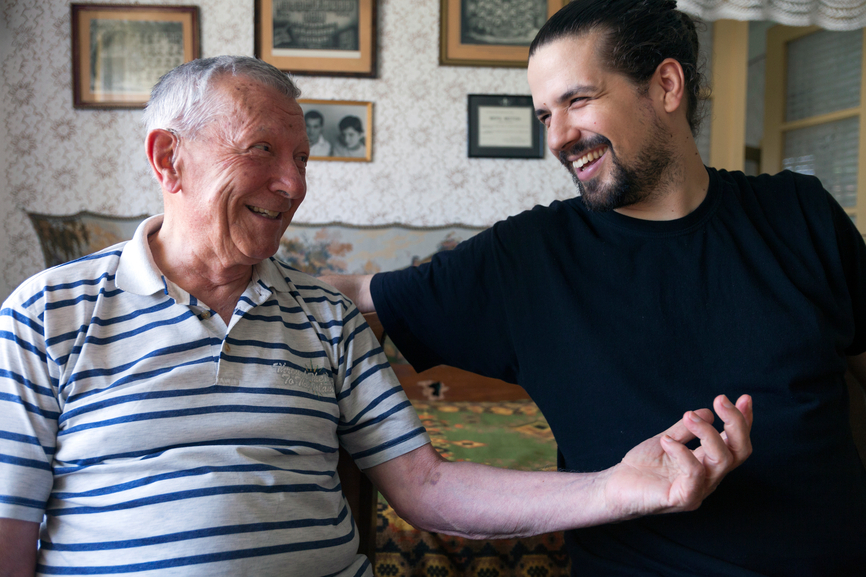Whether it’s a result of dementia or short-term memory loss due to the natural aging process, communicating with elderly parents, family or friends can be frustrating. Elderly people can have problems with word recall, are prone to repeating themselves and can veer off-topic during conversation.
Instead of pointing out the obvious, take a step back and try to imagine what it must feel like to know your cognitive abilities are beginning to slip. Sometimes elderly parents can even lash out with hurtful statements and it’s important not to return fire but try to take a moment to understand what might be the underlying cause of the comment.
The Alzheimer’s Association of Canada counsels patience when talking with an older adult who may suffer from memory loss. Try not to interrupt or correct someone trying to communicate, instead you can offer a guess and focus on the emotions being expressed rather than facts.
Conversation Starters
Long-term memory may remain in tact longer than the short term. Old photo albums, address books or yearbooks may help trigger discussion about events or people from the past.
For those who were once avid cooks, bring along an old recipe box and this may open a wonderful dialogue.
Reading from a favourite piece of literature, poetry or a book of faith may initiate a meaningful discussion.
Ask specific question such as describing the house they grew up in or where they took their children on vacation. Even asking what their favourite meal or summer activity was can spark interesting conversation and reveal family history that may never have been discussed otherwise.
Be respectful talking to older people, don’t talk down to seniors with “elderspeak”, addressing them like children. Studies have shown this kind of talk can have a negative effect on elders who receive the message they are incompetent.






Add Your Voice
0 Comments
Join the Discussion